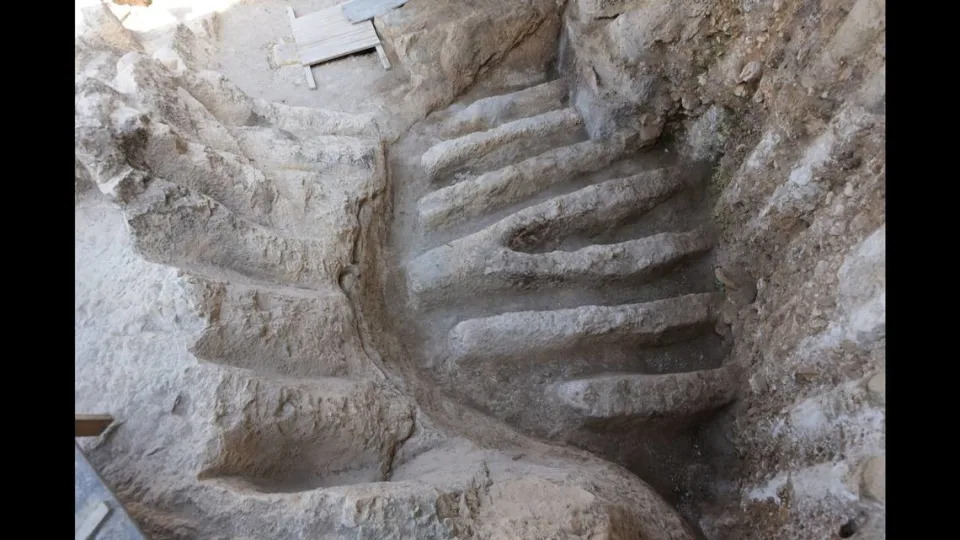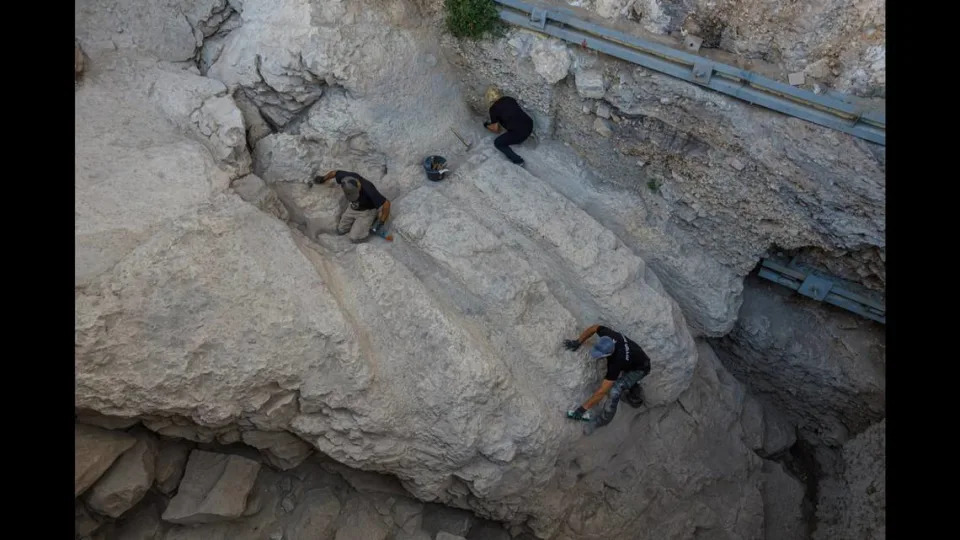Moira Ritter
Wed, August 30, 2023
An ancient and unique discovery has left experts and officials in Israel puzzled — they can’t figure out its purpose.
Archaeologists with the Israel Antiquities Authority said they have unearthed two mysterious channel installations from about 2,800 years ago in the City of David National Park in Jerusalem, according to an Aug. 30 Facebook post.

Experts said the channels flow in different directions and do not deposit to a central drainage point.
Despite intensive investigations, including help from a police forensic unit, no one can determine what the channels were used for, officials said.
Experts said they first discovered a structure of “unique and large-scale installations carved out of the rock.” Then, a second installation was found about 30 feet away atop a rocky cliff that encloses the first structure.

Officials said they called in the police forensics unit to help determine the use of the structures, but they were unsuccessful.
The first structure was found at the northeastern end of the Givati Parking Lot, according to officials. It contains a series of at least nine smoothed channels.
Archaeologists were puzzled by the discovery, according to senior researcher Yiftah Shalev.
“We looked at the installation and realized that we had stumbled on something unique, but since we had never seen a structure like this in Israel, we didn’t know how to interpret it,” he said in the antiquities authority’s social media post. “Even its date was unclear.”

The installations date back to the ninth century B.C., but archaeologists said they were likely built decades earlier.
Things only got more confusing when a second structure — which includes about seven drain pipes and at least five channels that appear to have carried liquid from atop the cliff to the first set of channels — was discovered, archaeologists said.
“The mystery only grew deeper when we found the second installation to the south,” Yuval Gadot of Tel Aviv University’s Archaeology and Ancient Near Eastern Civilizations Department said in the Facebook post.
Experts said they determined that the second installation was in use until the end of the ninth century B.C.
“Despite some differences in the way the channels were hewn and designed, it is evident that the second installation is very similar to the first,” Gadot said in the post. “This time, we also managed to date when the facility fell out of use – at the end of the 9th Century BCE, during the days of the biblical kings of Judah - Joash and Amaziah. We assume that the two installations, which, as mentioned, may have been used in unison, were constructed several decades earlier.”
Although the purpose of the two installations is unclear, experts have some ideas.
“Since the channels don’t lead to a large drainage basin and the direction of their flow varies, it is possible that the channels, at least in the northern installation, were used to soak products – and not to drain liquids,” Shalev said in the post.
Shalev said the channels could have been used for the production of linen or held products that needed to be heated by the sun.
No comments:
Post a Comment